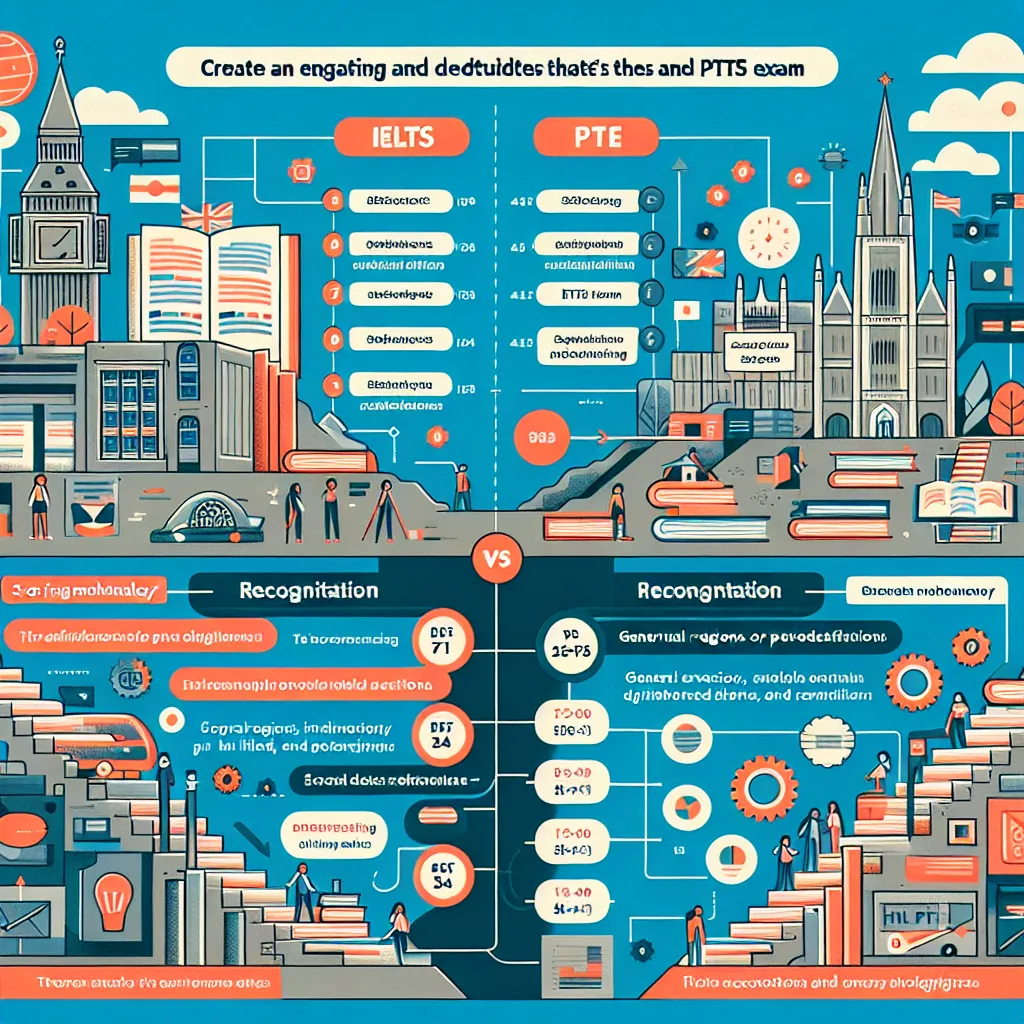Are you considering taking an English language proficiency test for study, work, or migration purposes? Two popular options are the International English Language Testing System (IELTS) and Pearson Test of English Academic (PTE Academic). While both exams assess English language skills, they have distinct differences that can impact your choice. This article will provide a detailed comparison of IELTS and PTE exams, helping you make an informed decision about which test suits your needs best.
Introduction to IELTS and PTE
Before we dive into the differences, let’s briefly introduce each exam:
IELTS (International English Language Testing System)
IELTS is jointly owned by the British Council, IDP: IELTS Australia, and Cambridge Assessment English. It’s widely recognized by over 10,000 organizations worldwide, including educational institutions, employers, and immigration authorities.
PTE Academic (Pearson Test of English Academic)
PTE Academic is a computer-based English language test owned by Pearson PLC group. It’s accepted by thousands of universities worldwide and by the governments of Australia and New Zealand for visa applications.

Key Differences Between IELTS and PTE
Let’s explore the main differences between these two exams:
1. Test Format and Duration
IELTS:
- Format: Available in both paper-based and computer-delivered formats
- Duration: 2 hours 45 minutes (Listening: 30 minutes, Reading: 60 minutes, Writing: 60 minutes, Speaking: 11-14 minutes)
- Speaking test is conducted face-to-face with an examiner on a different day
PTE Academic:
- Format: Entirely computer-based
- Duration: Approximately 3 hours (all sections completed in a single sitting)
- Speaking test is computer-based and completed along with other sections
2. Test Sections and Question Types
IELTS:
- Four sections: Listening, Reading, Writing, and Speaking
- Mix of question types including multiple choice, short answer, essay writing, and face-to-face interview
PTE Academic:
- Three main parts: Speaking & Writing (combined), Reading, and Listening
- Includes 20 different question types, such as summarize spoken text, essay writing, multiple choice, and fill in the blanks
3. Scoring System
IELTS:
- Scores range from 0 to 9 in 0.5 band increments
- Each section is scored separately, and an overall band score is calculated
- Results typically available in 13 days for paper-based and 5-7 days for computer-delivered tests
PTE Academic:
- Scores range from 10 to 90 in 1-point increments
- Provides an overall score and individual scores for communicative skills and enabling skills
- Results usually available within 5 business days
4. Test Availability and Frequency
IELTS:
- Offered up to four times a month at over 1,600 locations worldwide
- Fixed test dates, which can be booked months in advance
PTE Academic:
- Available on-demand at over 250 test centers worldwide
- More flexible scheduling, often allowing bookings just 24 hours in advance
5. Recognition and Acceptance
IELTS:
- Widely accepted by over 10,000 organizations globally
- Preferred for UK and Canadian immigration
- Accepted by most Australian and New Zealand institutions
PTE Academic:
- Accepted by thousands of universities worldwide
- Preferred for Australian immigration
- Gaining recognition in the UK, USA, and Canada
Choosing Between IELTS and PTE
When deciding which test to take, consider the following factors:
-
Purpose of the test: Check which test is required or preferred by your target institution or immigration authority.
-
Test format preference: If you’re more comfortable with computer-based tests, PTE might be a better choice. If you prefer a mix of paper-based and face-to-face components, IELTS could be more suitable.
-
Time constraints: PTE offers more flexible scheduling and faster results, which can be advantageous if you’re under time pressure.
-
Question types: Review sample questions from both tests to see which format you’re more comfortable with.
-
Speaking test format: Consider whether you prefer a face-to-face interview (IELTS) or a computer-based speaking test (PTE).
-
Scoring system: Understand the scoring systems of both tests and how they align with your goals or requirements.
Preparation Strategies for IELTS and PTE
Regardless of which test you choose, effective preparation is crucial. Here are some strategies that apply to both exams:
-
Familiarize yourself with the test format: Take practice tests and review sample questions to understand the structure and types of questions you’ll encounter.
-
Improve your general English skills: Focus on enhancing your reading, writing, listening, and speaking abilities through regular practice.
-
Time management: Practice completing tasks within the allocated time to improve your speed and efficiency during the actual test.
-
Use official preparation materials: Both IELTS and PTE offer official practice resources that can help you prepare effectively.
-
Consider preparation courses: Enroll in test preparation courses or work with a tutor specializing in your chosen exam.
Conclusion
Both IELTS and PTE are respected English language proficiency tests with their own strengths. The choice between them depends on your individual circumstances, preferences, and goals. By understanding the key differences outlined in this article, you can make an informed decision and focus on preparing effectively for your chosen exam.
Remember, regardless of which test you choose, consistent practice and dedication to improving your English language skills are key to achieving your desired score. Good luck with your preparation and future endeavors!